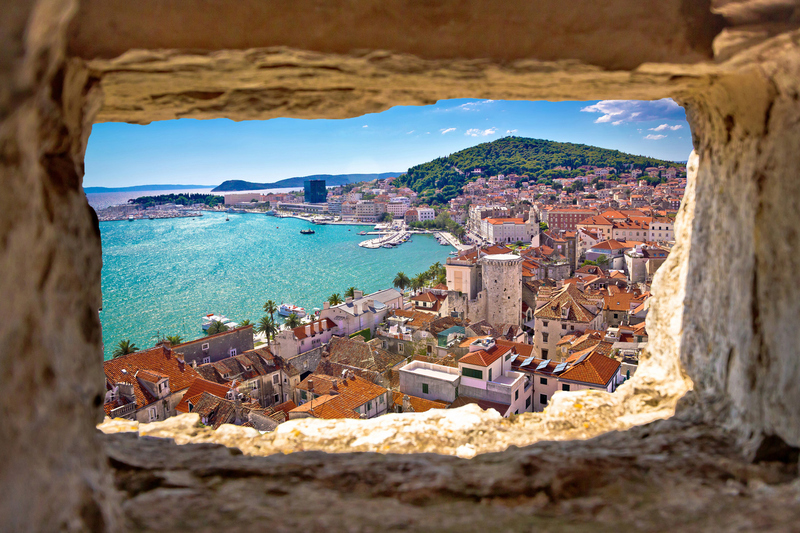Discover Croatia: A Hidden Gem for Retirement
Croatia, with its stunning Adriatic coastline, historic cities, and Mediterranean climate, is an emerging destination for retirees seeking a balance of natural beauty and cultural richness. From the ancient walls of Dubrovnik to the serene islands of the Dalmatian coast, Croatia offers a diverse and captivating experience.
Coastal and Island Living:
Coastal cities like Split and Zadar provide a blend of modern amenities and historic charm, while islands such as Hvar and Brač offer tranquil settings surrounded by crystal-clear waters.
Leisure and Recreation:
Croatia is renowned for its outdoor activities, including sailing, hiking in national parks like Plitvice Lakes, and exploring UNESCO World Heritage Sites. The country’s wine regions and culinary offerings add to its appeal.
Relaxation and Comfort:
With a lower cost of living compared to many Western European countries, excellent healthcare facilities, and a laid-back lifestyle, Croatia is an attractive option for retirees seeking comfort and affordability.
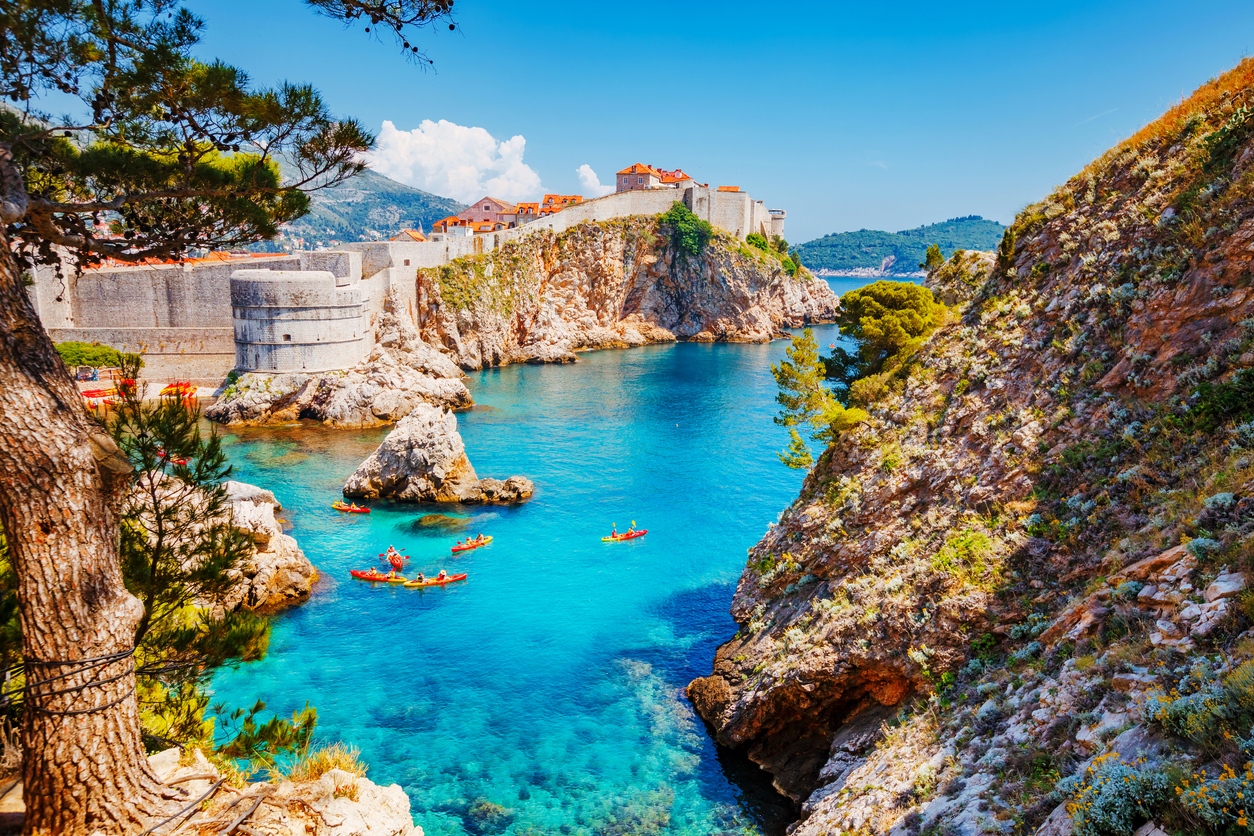
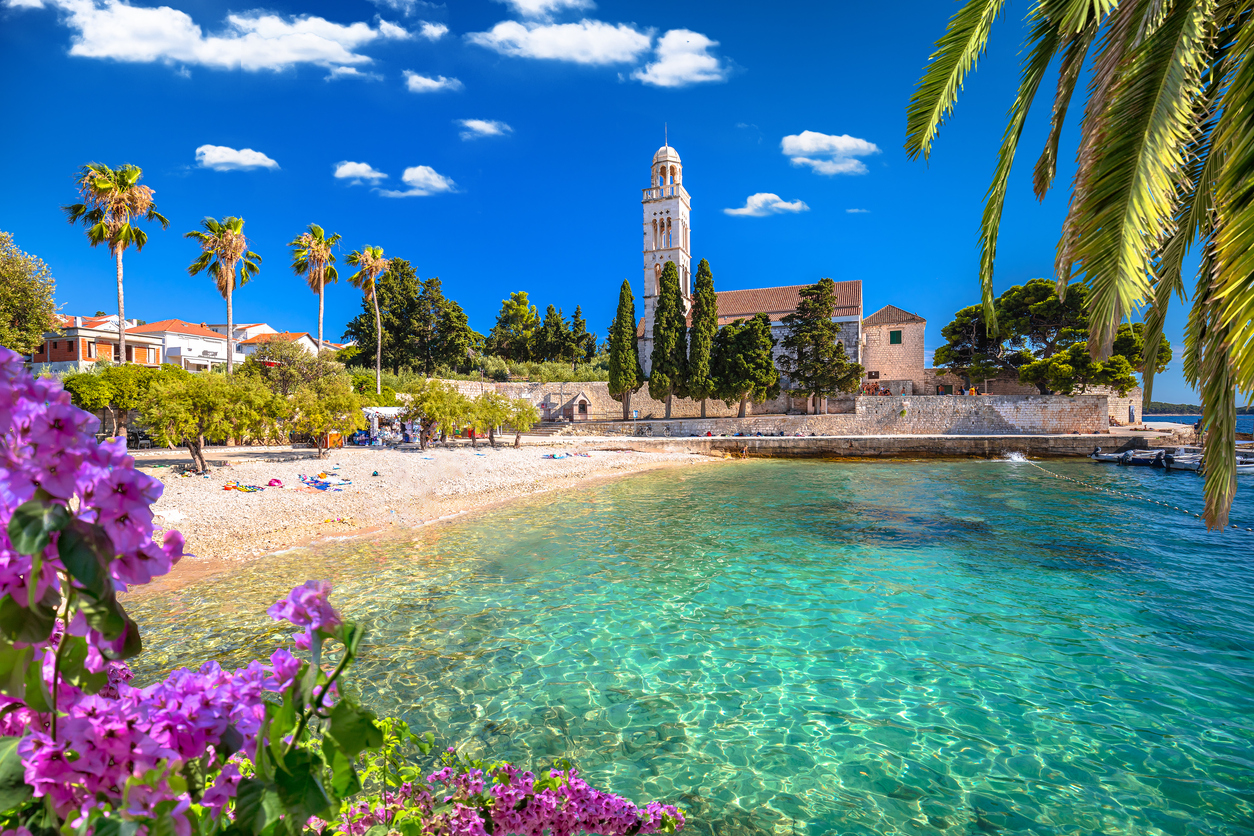
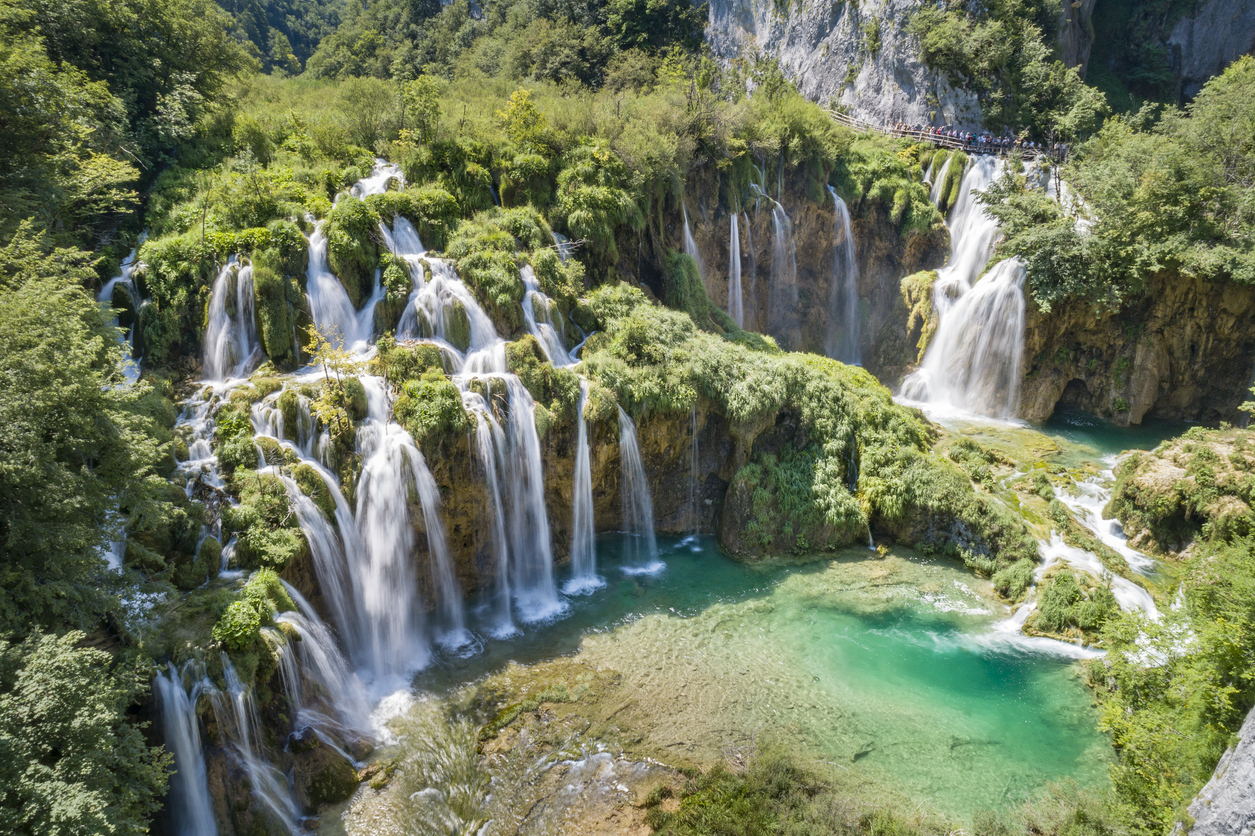
Visa Requirements
Non-EU citizens wishing to retire in Croatia need to obtain a temporary residence permit. While Croatia does not have a specific retirement visa, retirees can apply for temporary residency based on having sufficient financial means and health insurance.
Application Process:
- Documentation: Provide proof of sufficient funds (bank statements, pension statements), valid health insurance, a lease or property ownership documents, and a criminal background check.
- Financial Requirements: Demonstrate a steady income or savings to support yourself without working in Croatia.
- Application Submission: Submit your application at a Croatian embassy or consulate in your home country or at the local police station in Croatia. More information can be found at the Ministry of Foreign and European Affairs.
Renewal and Permanent Residency:
The temporary residence permit is typically granted for one year and can be renewed annually. After five years of continuous temporary residence, you may be eligible to apply for permanent residency.

Qualify for a Passport
After residing in Croatia for eight years, you may apply for citizenship through naturalization. Requirements include passing a language and culture test and demonstrating integration into Croatian society.
EU/Schengen Benefits:
Croatia is a member of the European Union and joined the Schengen Area in 2023. Holding a Croatian passport allows freedom of movement across EU and Schengen countries.
Health Insurance
Health insurance is mandatory for all residents in Croatia. Upon obtaining temporary residency, you are required to enroll in the Croatian public health insurance system, HZZO.
Public Health Insurance (HZZO):
The HZZO provides comprehensive healthcare coverage, including primary care, specialist consultations, hospitalization, and prescription medications. New residents must pay a one-time fee for back premiums (typically covering the previous year) and a monthly premium thereafter.
Private Health Insurance Options:
While the public system is extensive, some retirees opt for additional private health insurance to access private facilities or services not covered by HZZO. Providers include:
Healthcare Quality:
Croatia's healthcare system offers quality services with well-trained medical professionals. Major cities have modern facilities, while rural areas may have limited access to specialists.
Key Considerations:
- Enrollment: Register with HZZO promptly after obtaining residency to ensure continuous coverage.
- Coverage: Review what is included in the public system and consider supplemental private insurance if necessary.
- Language: English-speaking doctors are available, especially in urban areas and private clinics.
Cost of Living
Croatia offers a relatively low cost of living compared to Western European countries. Here's a detailed breakdown:
Housing
- Coastal Cities: In cities like Dubrovnik and Split, a one-bedroom apartment in the city center can cost between €500 to €800 per month. Outside the city center, prices range from €400 to €600.
- Smaller Towns and Inland Areas: Rent can be significantly lower, with one-bedroom apartments ranging from €250 to €400 per month.
Utilities
- Basic utilities average around €100 to €150 per month.
- Internet services cost approximately €25 to €35 per month.
Groceries
- Monthly grocery bills for a couple can range from €250 to €350, depending on shopping habits.
- Local markets offer fresh produce at reasonable prices.
Transportation
- Public transportation is affordable. A monthly pass costs about €40.
- Fuel prices are around €1.50 per liter.
- Intercity buses and ferries are cost-effective for traveling within Croatia.
Entertainment and Dining Out
- Dining at a mid-range restaurant costs around €15 to €25 per person.
- Cinema tickets average around €6 to €8.
- Cultural events and festivals are often free or low-cost.
Healthcare
- Monthly public health insurance premiums are approximately €70 per person.
- Private healthcare services are available at additional costs.
Other Expenses
- Clothing: Prices vary, with both affordable and high-end options available.
- Recreation and Sports: Gym memberships average around €30 to €50 per month.
- Miscellaneous: Personal care items and household supplies might add another €80 to €120 to monthly expenses.
Summary
- Total Monthly Expenses: A comfortable retirement might require a monthly budget of €1,200 to €2,000, depending on lifestyle and location.
- Regional Differences: Living in smaller towns or inland areas can significantly reduce costs.
- Quality of Life: Croatia offers a high quality of life with beautiful surroundings and a relaxed pace.
Population
Croatia has a population of approximately 4 million people, making it one of the smaller countries in the European Union by population. The population density is relatively low, with most people living in urban areas and along the coast.
The capital city, Zagreb, is the largest city with around 800,000 residents. Other significant urban centers include Split, Rijeka, and Osijek. The coastal regions are more densely populated due to tourism and economic activities related to the sea.
Croatia faces demographic challenges such as an aging population and emigration of young people seeking opportunities abroad. However, this has led to a welcoming attitude toward foreigners and retirees who contribute to the local economy.
The country is culturally homogeneous, with the majority being ethnic Croats. There are minority communities of Serbs, Bosniaks, Italians, and others, adding to the cultural diversity in certain regions.
Transportation
Traveling to Croatia from US/Canada
While there are no direct flights from the US or Canada to Croatia, major European airlines offer connecting flights through cities like London, Frankfurt, and Amsterdam. Airlines servicing these routes include:
Exploring Croatia and Beyond
Croatia's transportation network allows for easy exploration of the country and neighboring regions:
- Air Travel: Domestic flights connect major cities and islands.
- Ferries: Extensive ferry services link the mainland with islands and even connect to Italy.
- Bus and Train: Reliable bus services cover the entire country, while trains connect major cities but are less comprehensive.
- Road Travel: Well-maintained highways make driving a convenient option.
Croatia's location offers easy access to other European countries, making it an excellent base for broader travel.
Activities for Retirees in Croatia
Croatia offers a wealth of activities for retirees, from cultural exploration to outdoor adventures.
Marinas and Sailing
Croatia is a paradise for sailing enthusiasts. The Adriatic Sea's calm waters and numerous islands provide excellent conditions. Popular marinas include:
- ACI Marinas - A chain of marinas along the coast.
Golf Courses
While golf is less prevalent in Croatia, there are a few courses available:
- Golf Park Dubrovnik (planned development).
Food and Restaurants
Croatian cuisine offers a mix of Mediterranean and Central European flavors. Seafood is a staple along the coast, while inland regions feature hearty meat dishes. Explore local eateries and fine dining establishments:
- Michelin Guide Croatia for top-rated restaurants.
- Local konobas (taverns) for authentic experiences.
Museums and Cultural Sites
Croatia is rich in history and culture, with numerous sites to explore:
- Croatian Museum Documentation Center for a list of museums.
Events and Festivals
Croatia hosts various festivals and events suitable for all ages:
- Music Festivals (though some cater to younger crowds).
- Split Summer Festival - Performing arts and culture.
Safety
Croatia is considered a very safe country for residents and visitors alike, boasting low crime rates and a peaceful environment. The country's effective law enforcement and community-oriented policing contribute to its overall safety. However, standard precautions are advisable.
General Safety Overview
The most common crimes are minor thefts, such as pickpocketing and bag snatching, especially in crowded tourist areas and public transportation hubs. Violent crime is extremely rare. Rural areas and smaller towns tend to have even lower crime rates.
Comparison with Other Countries
According to global safety indexes, Croatia ranks favorably, often higher than many Western European countries. It is considered safer than the United States and comparable to other peaceful European nations like Slovenia and the Czech Republic.
Recommendations for Retirees and Future Retirees
To ensure a safe and enjoyable experience in Croatia, consider the following tips:
- Choose Safe Locations: Areas like Dubrovnik, Split, and Istria are known for their safety and amenities suitable for retirees.
- Stay Vigilant: Be cautious in crowded places, keep personal belongings secure, and avoid displaying valuables openly.
- Secure Your Home: Ensure your residence has proper locks and consider security systems, especially if you live in a standalone property.
- Learn the Language: Learning basic Croatian can help with integration and enhance your ability to navigate daily life safely.
- Engage Locally: Build relationships with neighbors and participate in community events to foster a support network.
- Emergency Services: Familiarize yourself with local emergency numbers. Dial 112 for all emergency services in Croatia.
- Stay Informed: Keep up-to-date with local news and any travel advisories, especially regarding weather conditions or local events.
Terrorism and Public Safety
Croatia has a low threat of terrorism. The government maintains vigilance, especially during large public events. Standard precautions are advised in crowded areas.
Healthcare and Safety
Croatia's healthcare system is reliable, contributing to overall safety and well-being. Emergency medical services are accessible by dialing 194. Ensure you are registered with the public health system and have necessary health insurance.
Natural Disasters
Croatia is susceptible to certain natural events:
- Earthquakes: Minor seismic activity can occur, particularly in the coastal regions. Buildings are constructed to withstand earthquakes, but it's advisable to be aware of safety procedures.
- Wildfires: During dry summer months, wildfires can occur in forested and rural areas. Adhere to local advisories and fire bans.
- Flooding: Occasional flooding can happen, especially in low-lying areas. Stay informed about weather forecasts.
Transportation Safety
Public transportation is generally safe. Roads are well-maintained, but driving in rural areas may require caution due to winding roads. Observe local traffic laws and be cautious of other drivers who may drive aggressively.
Cybersecurity
Exercise standard precautions when using the internet. Protect personal information and use secure networks, especially for financial transactions.
Conclusion
Croatia offers a safe and welcoming environment for retirees and those considering future retirement abroad. By taking common-sense precautions and engaging with the local community, you can enjoy the beauty and culture of Croatia with peace of mind.
Main Locations
Dubrovnik

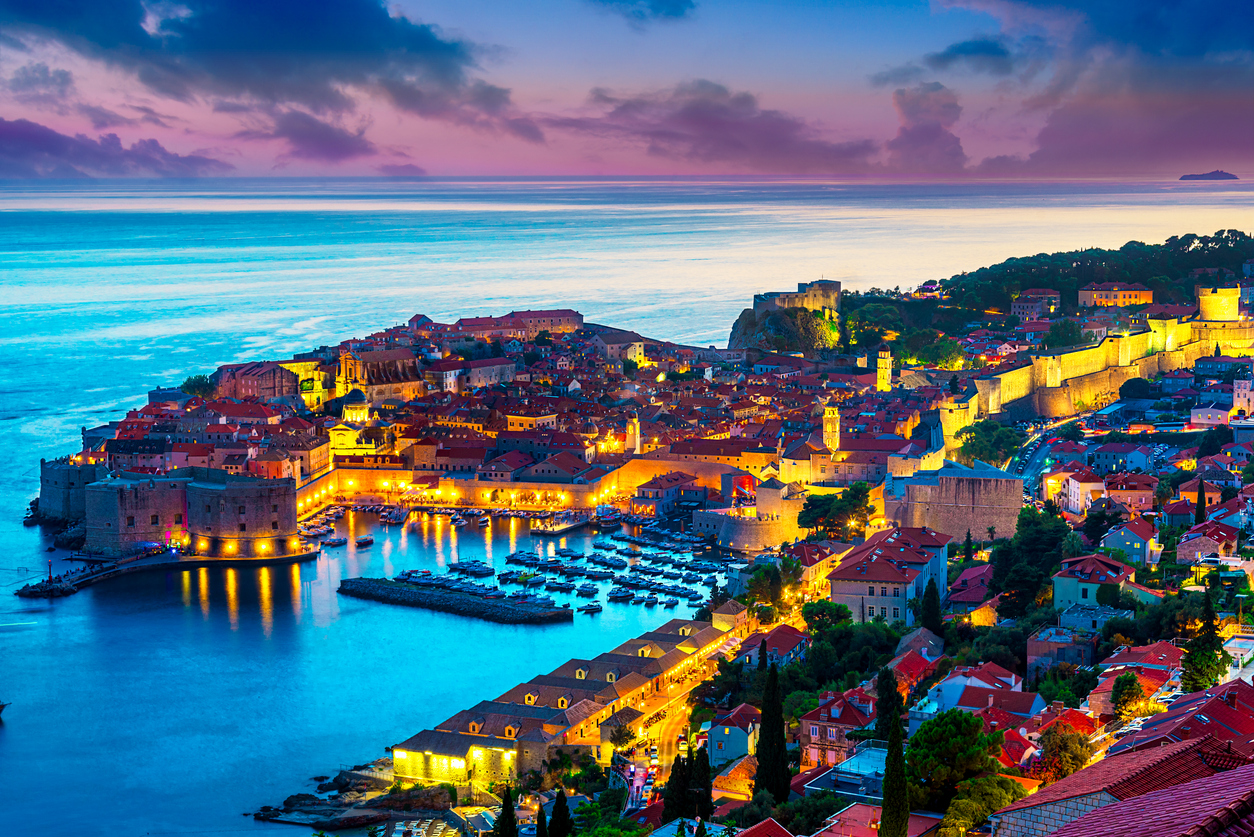
Climate
Dubrovnik enjoys a Mediterranean climate with mild winters and hot, dry summers. Average temperatures range from 10°C (50°F) in winter to 29°C (84°F) in summer.
Healthcare
Quality healthcare services are available, with facilities like the Dubrovnik General Hospital providing medical care. Private clinics are also available.
Cost of Living
Renting
- One-bedroom apartment in city center: €500-€800 per month
- One-bedroom apartment outside city center: €400-€600 per month
Buying
- Price per square meter in city center: €3,000-€5,000
- Price per square meter outside city center: €2,000-€3,500
Yearly Budget (for a couple)
- Renting: €18,000-€25,000 (including rent, utilities, groceries, transportation, and leisure)
- Buying: €15,000-€22,000 (excluding property purchase costs)
Property Taxes and Mortgage Rates
- Property Taxes: Property transfer tax is 3% of the property value. Annual property taxes are relatively low.
- Mortgage Rates: Typically range from 3% to 5%, depending on the lender and borrower profile.
Summary
Dubrovnik offers a historic and scenic environment with a warm climate. While it can be more expensive than other parts of Croatia, it provides a high quality of life with access to amenities suitable for retirees.
Split
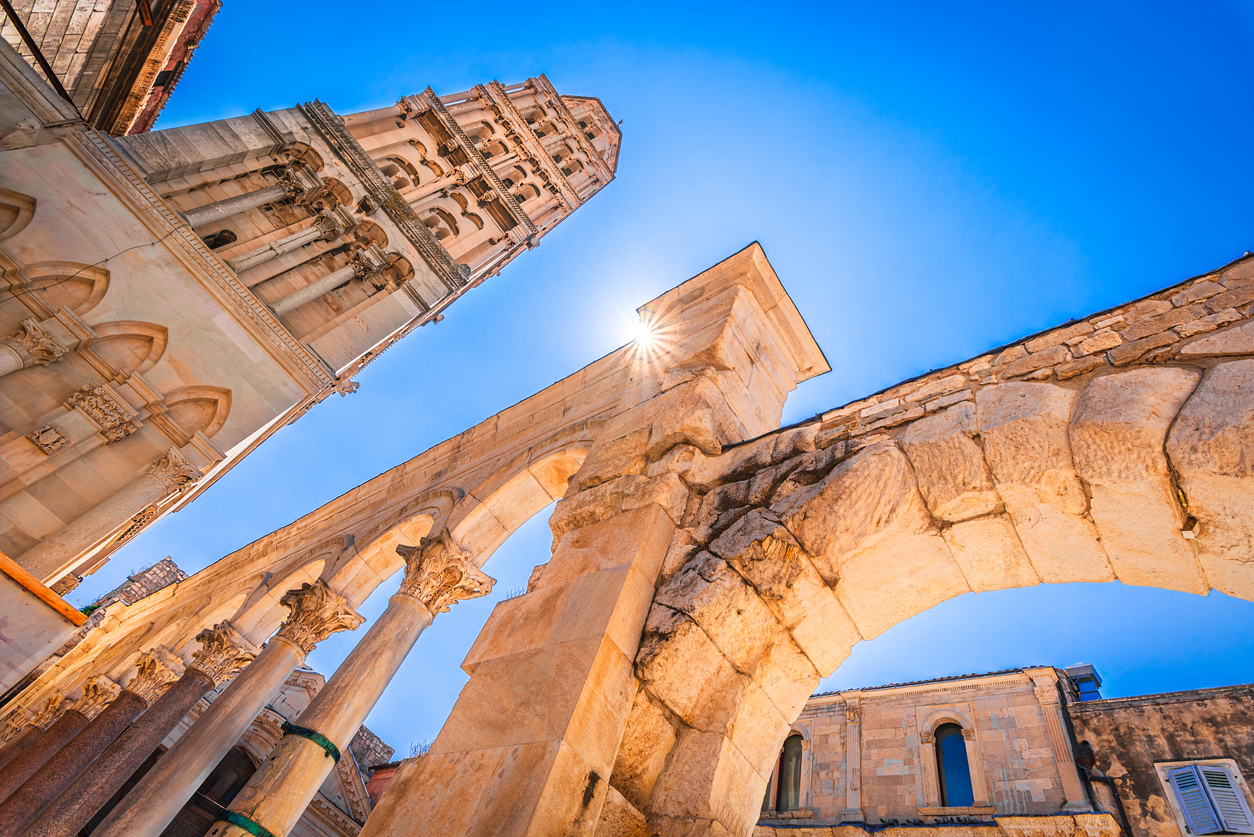
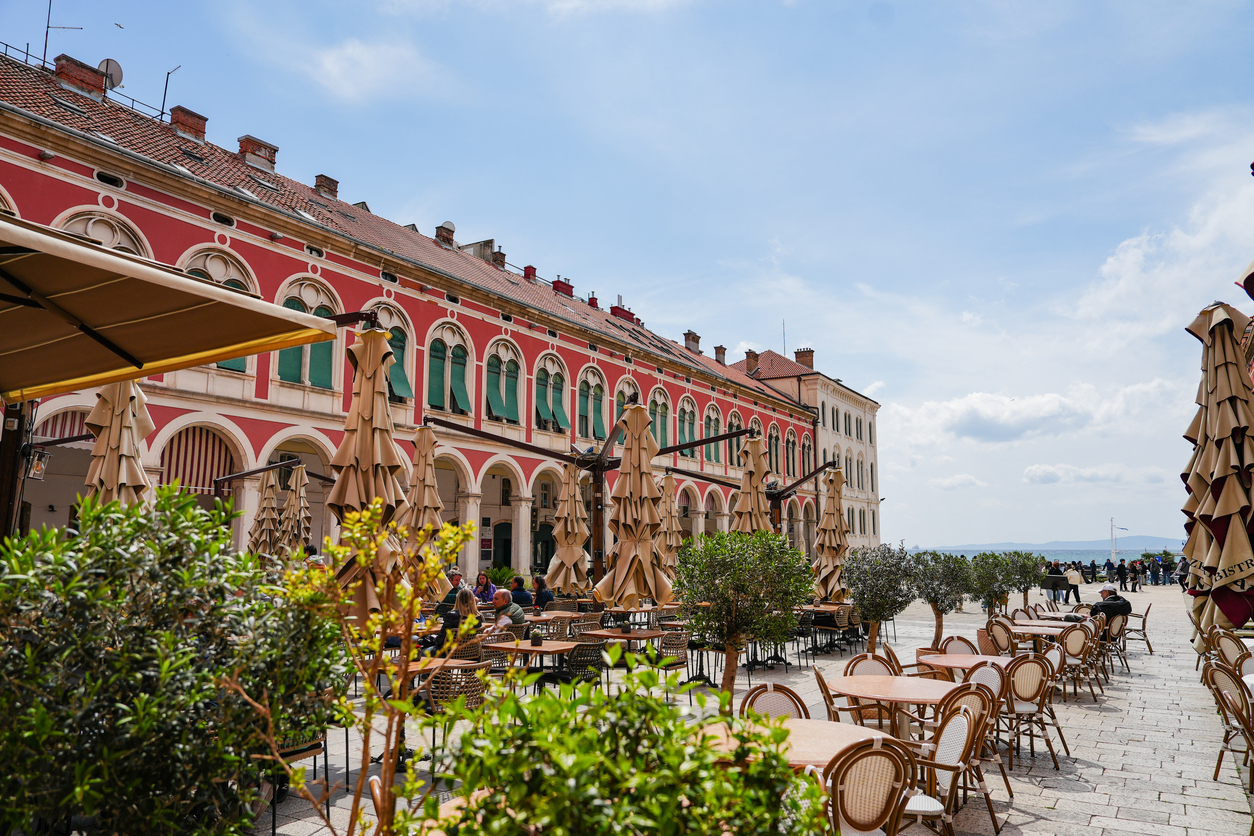
Climate
Split has a Mediterranean climate with mild winters and hot summers. Average temperatures range from 8°C (46°F) in winter to 30°C (86°F) in summer.
Healthcare
The city offers excellent healthcare services with facilities like the Clinical Hospital Center Split.
Cost of Living
Renting
- One-bedroom apartment in city center: €400-€700 per month
- One-bedroom apartment outside city center: €300-€500 per month
Buying
- Price per square meter in city center: €2,500-€4,000
- Price per square meter outside city center: €1,800-€2,500
Yearly Budget (for a couple)
- Renting: €16,000-€22,000
- Buying: €14,000-€20,000
Property Taxes and Mortgage Rates
- Property Taxes: Similar to Dubrovnik, with a 3% transfer tax.
- Mortgage Rates: Typically range from 3% to 5%.
Summary
Split combines urban living with historic charm. It's more affordable than Dubrovnik and offers a variety of amenities, making it a popular choice for retirees.
Istria
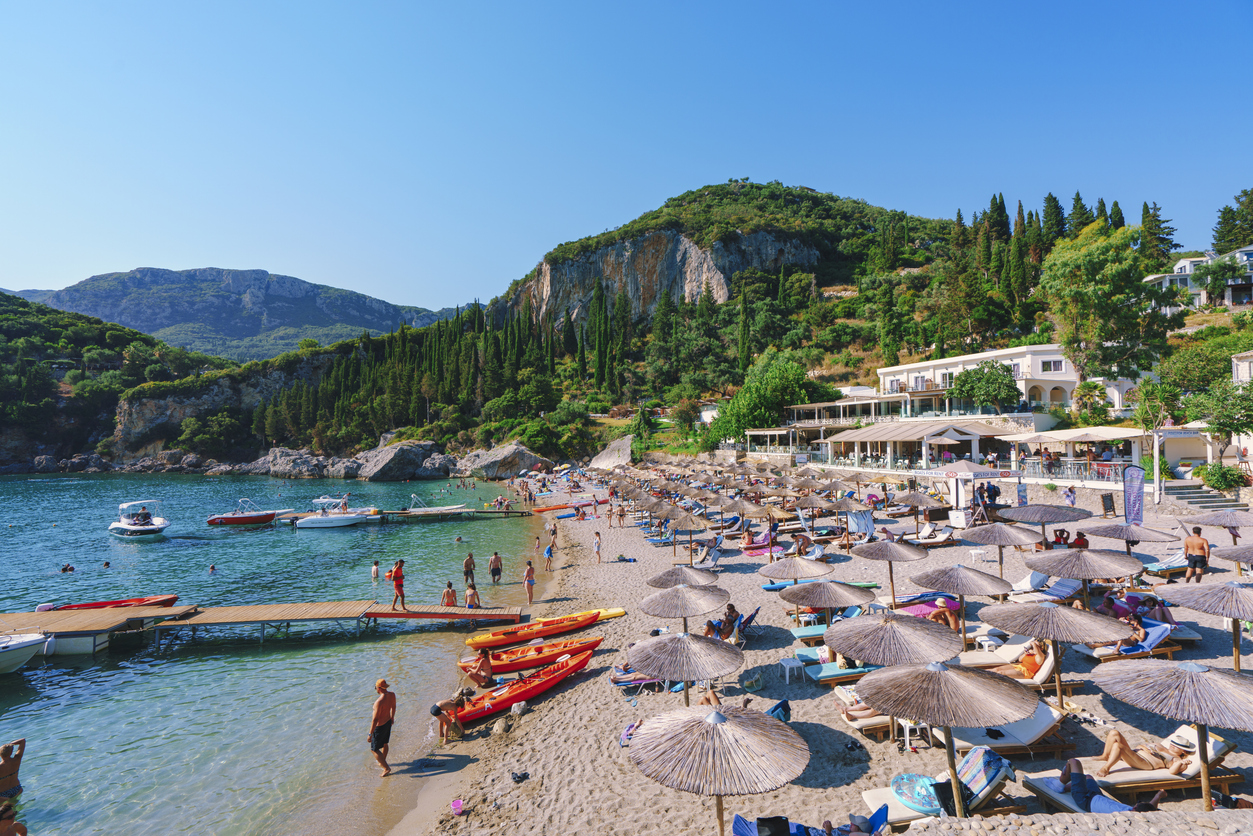
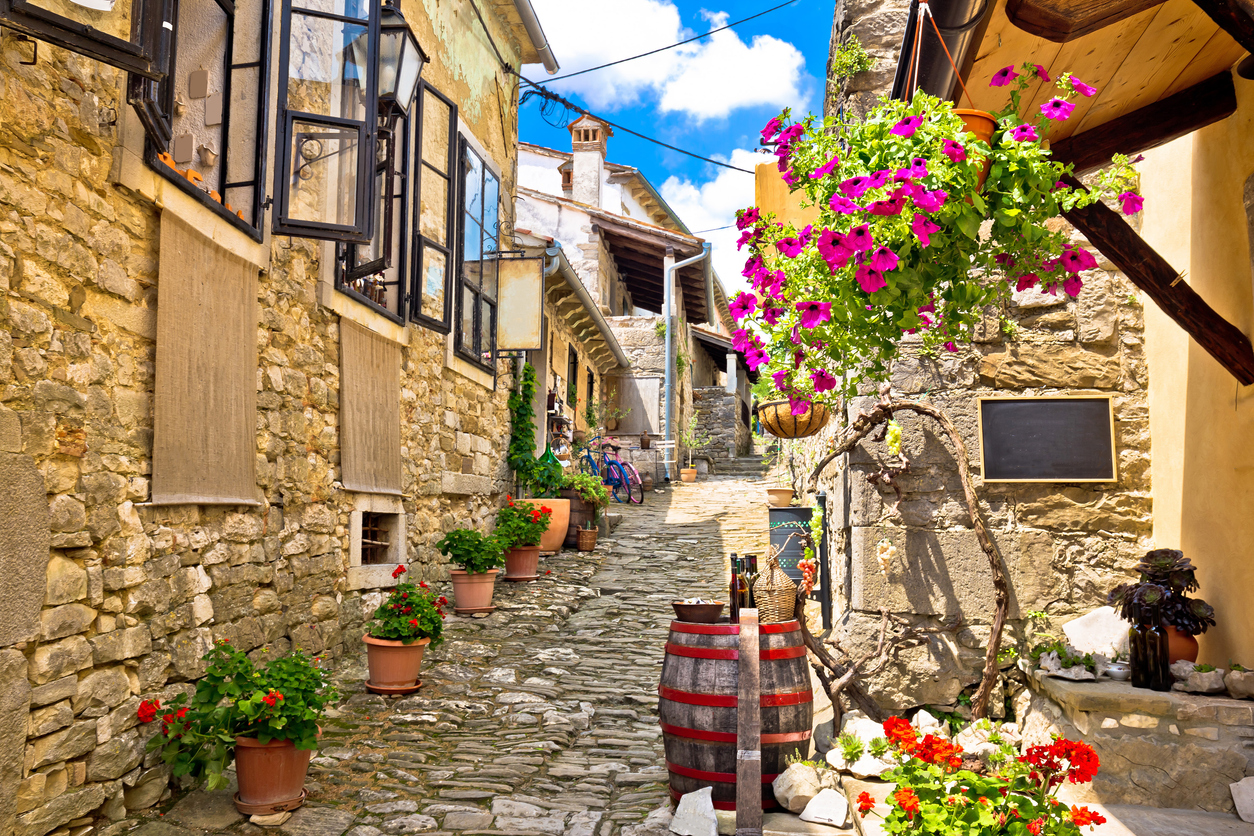
Climate
Istria has a mild Mediterranean climate with warm summers and mild winters. Average temperatures range from 6°C (43°F) in winter to 28°C (82°F) in summer.
Healthcare
Healthcare facilities are available in towns like Pula and Rovinj.
Cost of Living
Renting
- One-bedroom apartment in town centers: €300-€500 per month
- One-bedroom apartment outside town centers: €250-€400 per month
Buying
- Price per square meter in town centers: €1,500-€2,500
- Price per square meter outside town centers: €1,200-€2,000
Yearly Budget (for a couple)
- Renting: €14,000-€18,000
- Buying: €12,000-€16,000
Property Taxes and Mortgage Rates
- Property Taxes: Same as other regions in Croatia.
- Mortgage Rates: Typically range from 3% to 5%.
Summary
Istria offers a blend of Croatian and Italian influences, with picturesque towns and a peaceful lifestyle. It's an affordable region with a growing expatriate community.

